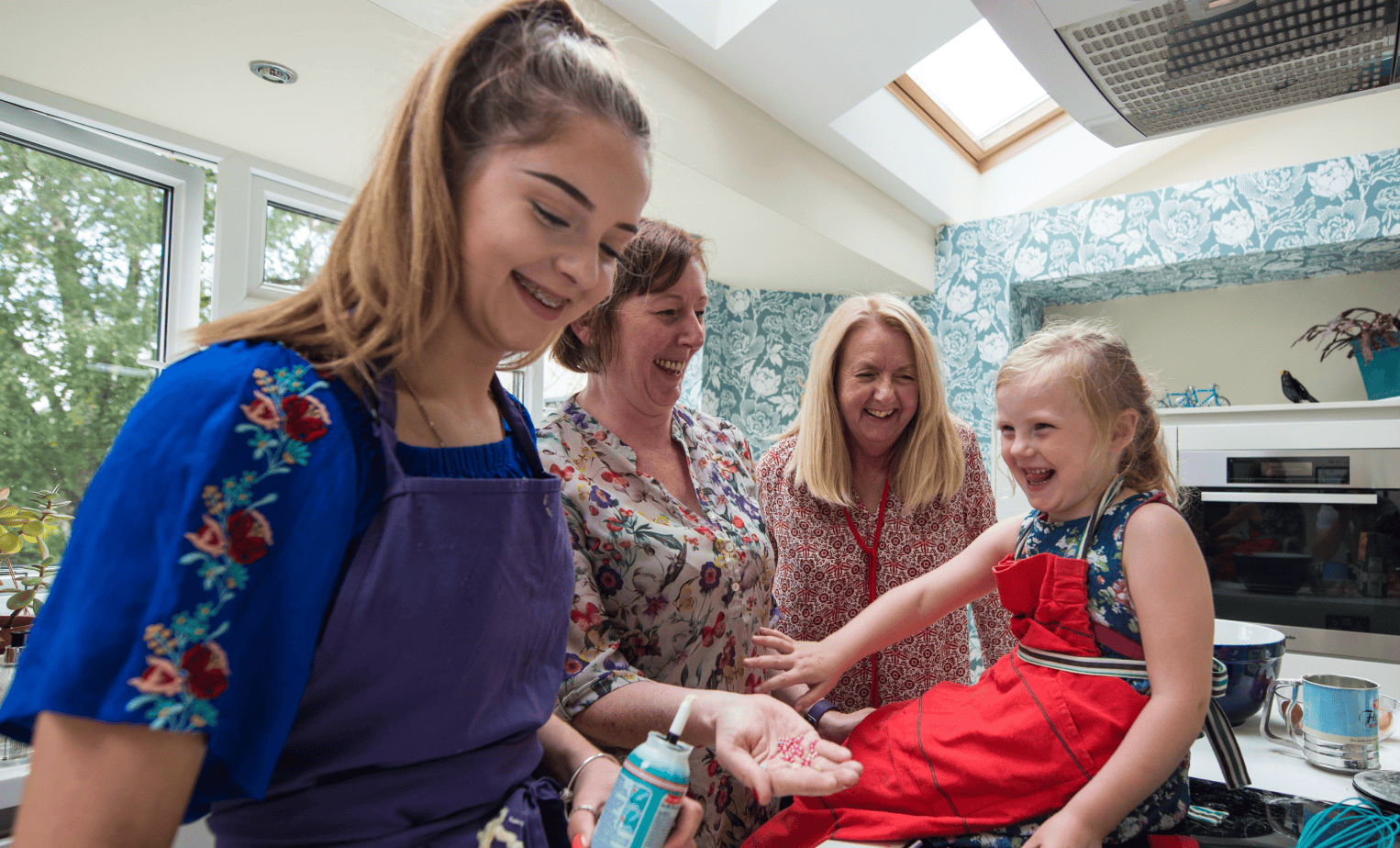The freedom of foster carers to move to another agency is recognised nationally and is captured in a formal transferring protocol document, which is designed to ensure that the freedom of choice by foster carers is respected by fostering agencies and local authorities as long as the best interests of the children in their care are fully met as a result of the transfer. The transferring protocol was first published in 2014 and was reviewed and agreed by Fostering Network in 2015.
In supporting a transfer process that is in the best interests of the children who may already be in placement, we feel that once a foster carer has decided to move to another agency, it should be facilitated as swiftly and as easily as possible for the carers. This will help the foster carers during the transfer process to remain focused on the children in their care and not distracted by politics and any potential deterioration in professional relationships as a result of the foster carers choice to move to another agency. However we recommend that you make sure that you have voiced your concerns or discontent with your agency, giving them a chance to try and put things right before you make the decision to transfer.
The undertaking of research to find the fostering agency that you feel will best meet your needs and expectations is worth the time. We have created a checklist with you in mind to explain the process of transfer and to enable you to ask relevant questions.
What is there to think about?
Establishing and understanding your reasons for wanting to leave an agency is important. It will help you to find what you feel you need with a new agency once you know what you are missing from the relationship with your current agency.
At some point you will need to speak to someone about your thoughts regarding transfer to another agency. The conversation should be confidential, and you should feel satisfied that there is no commitment at this stage and that an initial conversation is purely a fact finding exercise. You shouldn’t feel under any pressure, as it is important that any decision you make to transfer is made with lots of information and consideration.
The reasons for leaving an agency are very individual. It’s worth making a few notes about what you feel is important in your relationship with your new fostering agency and decide on good questions that may help you get the information you need. We have compiled a few that may help you.
How much of a role can I play in the agency to influence decisions made on behalf of foster carers and young people?
For many experienced foster carers, feeling part of the discussions that influence the changes in an agency is important. If you get the chance to speak with directors frequently, then you are likely going to be able to discuss your thoughts and make suggestions. It doesn’t mean that everything you ask for will be granted, but having the opportunity to influence, may be a factor for you. In large organisations the decisions are not always made locally, delaying the decision making process. Understanding how the company works, e.g. who are the shareholders, is a consideration. Start by looking closely at the company websites and check out the “About Us” pages.
How can I influence my development and the building of my future skills?
We prefer to use the term personal development rather than training. Personal development is individualised and enables you to plan alongside the agency for the areas that interest you or are likely to most benefit you and the young person in your care.
If you know a foster carer in the agency you are likely to choose, then try and speak with them, or take a look at the latest Ofsted report. Alternatively ask if you can talk with one of the agency foster carers.
Develop a list of the areas that already interest you and discuss them with the agency. Ask questions about other essential training too and how that fits.
We work to support you to create a development plan. We work to enable you to undertake mandatory learning as easily and efficiently as possible. We provide specialist conferences, bringing key national and international speakers, providing opportunities for other professionals to join the conferences, enabling us to learn alongside other experts.
We use group supervision in the way it is intended to share good practice and seek peer support. We also provide memberships with the National Association of Therapeutic Parenting, which provide additional support and development opportunities alongside that already provided by us.
We believe it is very important that foster carers understand the impact of trauma on a child. We are a trauma informed agency; our foster carer development reflects this.
What kind of relationships can I expect to have with the team members?
We feel strongly that the feeling of being supported is very much down to the quality of the relationships you will have with your supervising social worker and the support team. When you have decided what it is that you are looking for, you may well know how to ask if it exists. We suggest you get introduced to your potential SSW and find out how long they have worked at the agency and how the team works.
The registered manager is the accountable person for an agency and will be the influencing leader of the care team. This can indicate how stable the team is. It is difficult to build long term relationships when staff change frequently. Enquire about the stability of the team, (you can ask and/or look at the Ofsted report).
How many fostering households will your SSW support and what is the average number for the agency?
How widely spread are the households, this can help you determine the frequency of visits to your house. (The benchmark tends to be about 12 families per SSW but you may want to consider if these are all local families or if a SSW is covering 12 families over a large geography.
It’s work asking how the SSW likes to work, frequency for getting in touch with you, the type of relationship you can expect to have. This can determine the amount of time you will have with your SSW and the kind of relationship you are likely to have.
The relationship with your SSW is a vital one. Their approach and professional ability will impact on your support and future success as a foster carer.
We work with no more than 10 fostering households per SSW and we actively recruit our team to work where they live, enabling our team to spend more time with you, than in traffic.
What support is provided for you?
We believe feeling supported is a result of good trusting relationships with those you work with. Many organisations talk of providing good support, but you might want to consider what the support is made up of.
How flexible is the SSW in providing supervision with you?
For example, accommodating work and other commitments you may have. Will you have access to advice from your SSW outside of the usual working hours.
At To the Moon and Back Foster Care we work to build equal relationships between foster carers and SSW’s and determine an individual approach to how best to communicate, create plans for formal supervision and provide opportunities for learning and development.
Who else can you speak to and gain support from?
Are there support networks for you for example, other professional experts in the organisation such as therapists, peer support from other foster carers, organisational memberships that can support you with advice and information. We believe access to a range of information is very important and provides a variety of options for foster carers.
What advice and support is available when the office is closed?
In particular the evenings and weekends. Many offer telephone support and this is available over 24 hours. It may not always be the person you are most familiar with, so how does this work.
We acknowledge how much information we have about you as a foster carer and work openly to share information about us with you, so that the relationship feels balanced. We work individually, so we look at how we can support you best. We are a therapeutic team, and we look out for your health and wellbeing, making sure that you are at your best. We are approachable, realistic and work to help you feel safe. We provide support individually, and as a group and we provide each foster carer with a membership with the National Association of Therapeutic Parenting. We have access to experts to support your SSW to advocate on behalf of your child and yourself where required.
What is the breakdown rate of placements?
It is important to understand how many placements of children, within the agency, result in breakdown and require children to be removed and placed with other foster carers. This may happen for many reasons, but the matching and placement process of children to foster families is intended to prevent breakdown.
You may want to ask more about the needs of children being typically placed within the agency. You can ask if it is possible to speak with one of the foster carers, thus finding out about their experience. Ask how the agency obtains and uses feedback, particularly from foster carers and young people, and how that is recorded and evaluated.
It is important that agencies are good at listening to the views of the children and the foster carers. There should be an informal as well as a formal process which allows you as a foster carer to offer feedback and this should inform improvements to be made. This is good governance and a requirement of registration.
What does matching look like?
We all know that good matching of children with foster carers is more likely to result in settlement and longer stays. We suggest that you ask how matching processes work in your chosen agency. We believe the matching should be in conjunction with you and additional information provided for you to make your decision. We carefully consider what is not written in a referral and we analyse the needs of the child, ensuring as far as possible that the placed child will impact positively alongside your family.
What support can I expect financially?
The agreements between fostering agencies and local authorities determines the fees for foster carers. Fees vary depending on the type of care the child requires. Agencies will advertise fees and it is important to understand how the fee is determined by asking about the levels of care required for children for the level of fee that is advertised. Also you may wish to ask what else is provided to support the financial costs of supporting a child. This varies from agency to agency but might include mileage payments when transporting children, birthday and festival presents and/or clothing allowances. Get in touch to find out about our fees
As a transferring foster carer, you can expect that the fees you are getting now, will be replicated as a minimum and you will not receive anything less. It is worth checking with your newly chosen agency if they would likely agree to pay your fees.
Does the agency have strong positive links with the local authorities?
This is important and can determine types of placements you might be offered depending on contractual arrangements. Their relationship with others involved in the care of your child, may be indicative of how the agency feels able to challenge and advocate on your behalf too. You can identify often if positive relationships exist by looking at the latest Ofsted report and asking other foster carers.
How long is the transfer process taking currently and what is involved?
People who have already gone through our transfer process have commented it was a more understandable process than the original assessment and seemed much easier. Assessments are undertaken before you transfer. Because there is a lot of information available about you as a foster carer, we endeavour to work with your agency to read your files and ask questions about your fostering career. We work with you to build our picture of you, that will be shared with our panel formally, as you would expect. You must be presented to our panel in the same way you were, when you first became a foster carer.
You may need to undertake mandatory training to get up to date, and it may be felt necessary or desirable for you to attend some of the Skills to Foster course, this is individualised, and we will discuss this with you.
We will have to undergo checks about you and verify who you are
We appreciate that transferring your approval to foster, is a big decision. The timing is influenced by your intention to enable us to have conversations with your current foster agency. We are unable to do that until you give formal consent to your current agency and ourselves. This is normally done in the letter of intent to transfer your approval to another agency. You are not committed at this point, to transfer, however you have raised the point that you intend to leave your agency if everything goes well with the new agency that you have chosen.
Once you have done this, we can access records of yours, but this will be only in conjunction with your existing agency. We work hard to make this part straightforward on your behalf. A protocol meeting will be requested by ourselves. This meeting involves you, the social workers of any children in your care at that time, the agency you are working with and your newly chosen agency. The purpose of this meeting is to determine that the move to another agency will be in the best interest of any children in your care. The meeting will involve conversations about the needs of any children and how the newly chosen agency will meet them. There will be questions about how the agency intends to support the development of you and how they intend to charge the local authority and pay you. All in all the purpose of this is to make sure that when you give your notice to leave your agency, (which you will only serve, when the panel of your newly chosen agency has recommended you and the ADM has ratified their recommendations formally) as the notice to leave once served, cannot be taken back. Therefore initially, you only inform the agency of your intention to transfer, the actual serving of 28 days’ notice, only takes place after the ADM of your new agency has ratified the decision. Once the 28 days’ notice has been served, you will automatically, on the agreed date, move over to your newly chosen agency.
What support is available if you wish to take breaks or holidays from fostering?
The provision of “respite” can be a contentious issue for foster carers. It requires notice of the need for respite, firstly to ensure availability and secondly to prepare the children who will be using the respite service.
Find out how respite is supported in the agency. Ask also, how the agency enables you to use the family and friends support you have built around you, when you may need a break.
We provide flexibility for the use of the respite fund available to you. We know that there are lots of reasons why you may require the use of respite. We have foster carers who specifically undertake respite services, some who are willing to do this in foster carers homes to avoid children having to leave their home.
Respite arrangements are often established as part of any placement agreement. When children are living with you, it is expected that you will treat them as you would your own children, taking them on holidays with you. Some agencies will offer you financial support to help you fund taking children with you, or paying for children’s activities whilst on holiday, which leaves you to have a day to yourself whilst the children are having fun.
Get in touch to find out about our support for respite.
How does group supervision work, what activities are there for families and children including your own children?
It is important that activities are available to families to enable people to build other relationships and to enable fostered children and children of foster carers to come together. We use this as an opportunity to have fun but also to chat about experiences and seek the chance to build support networks and learn about the experience of those using our services.
What is the culture of the agency, how does the organisation maintain and live up to their values?
All organisations regardless of their size have a culture. You can look at their statement of purpose and ask questions related to it. The statement of purpose is a regulatory requirement and has to be included on the agency website, so it is easy for you to read it. Click here to read our Statement of Purpose.
How does the agency positively promote the image of former looked after children?
Often the image is negative as a direct result of poor outcomes but are there people in the organisation that challenge that view. Are there care experienced people working in the organisation and how do they influence the improvement of outcomes for fostered children.
We see the transferring of foster carers to alternative agencies as a positive process, led by foster carers. We welcome conversations about whether we can offer what you are looking for, understanding that we might not be suitable for you. It’s very important to feel that you can work with us and wish to be a part of something special. We take fostering young people very seriously and we appreciate the need to attract a diverse mix of foster families to match the diverse needs of young people requiring our services. We want foster carers to be successful and support the building of networks that ensure foster carers feel part of something good.





